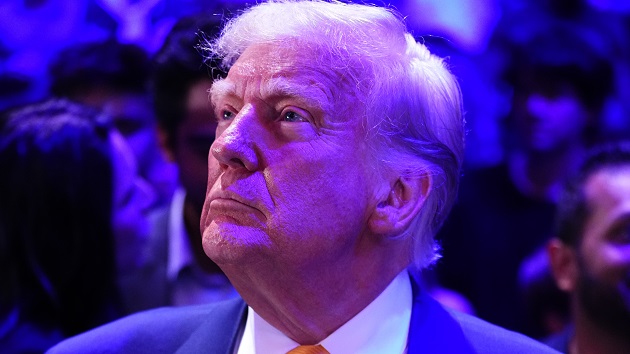
(WASHINGTON) — President Donald Trump and El Salvador’s President Nayib Bukele, meeting at the White House on Monday, were pressed repeatedly on what’s next regarding the wrongful deportation of Kilmar Abrego Garcia, a migrant from Maryland.
Attorney General Pam Bondi told reporters in the Oval Office, “It’s up to El Salvador if they want to return him,” and Secretary of State Marco Rubio called him a citizen of El Salvador.
Bukele, the self-described “world’s coolest dictator” who has become a key ally in the administration’s controversial migrant deportations, indicated, when a reported asked, that he would not take action to release Abrego Garcia.
“I don’t have the power to return him to the United States,” Bukele said.
The Supreme Court last week ordered the Trump administration to “facilitate” the return of Abrego Garcia. Trump on Friday said, “If the Supreme Court said bring somebody back, I would tell them to do that. I respect the Supreme Court.”
Trump appeared to amend that statement, though, in a social media post over the weekend where he suggested the fate of those deported now rests with Bukele.
“Looking forward to seeing President Bukele, of El Salvador, on Monday! Our Nations are working closely together to eradicate terrorist organizations, and build a future of Prosperity. President Bukele has graciously accepted into his Nation’s custody some of the most violent alien enemies of the World and, in particular, the United States,” Trump wrote. “These barbarians are now in the sole custody of El Salvador, a proud and sovereign Nation, and their future is up to President B and his Government.”
The Justice Department argued in court filings that the courts had “no authority” to direct how the executive branch engages in foreign relations and argued the administration could not interfere with El Salvador’s sovereignty. Another hearing is set in the case for Tuesday.
Ahead of Monday’s meeting, President Trump said he thought Bukele was “doing a fantastic job” and “taking care of a lot of problems that we have that we really wouldn’t be able to take care of from a cost standpoint.”
“We have some very bad people in that prison, people that should have never been allowed into our country, people that murder drug dealers, some of the worst people on Earth are in that prison and he’s able to do that,” Trump told reporters on Air Force One as he returned to Washington from Florida on Sunday.
When pressed further about the alleged human rights abuses reported at El Salvador’s notorious mega-prison CECOT, President Trump said, “I don’t see it. I don’t see that happening.”
The Trump administration has deported hundreds of migrants they allege to be Venezuelan gang members to El Salvador, though have done so with seemingly little due process.
Rubio, in a social media post over the weekend, said the efforts continued with another 10 alleged criminals associated with MS-13 and Tren de Aragua deported to El Salvador.
Rubio wrote that the “alliance” between Trump and Bukele “has become an example for security and prosperity in our hemisphere.”
Plus, Trump and several officials have floated sending U.S. citizens convicted of violent crimes to the infamous El Salvador prison — something legal experts have said would violate the Constitution.
“The president has discussed this idea quite a few times publicly. He’s also discussed it privately,” White House press secretary Karoline Leavitt told reporters last week.
“These would be heinous, violent criminals who have broken our nation’s laws repeatedly. And these are violent repeat offenders in American streets,” Leavitt continued.
“The president has said if it’s legal, right, if there is a legal pathway to do that, he’s not sure. We are not sure if there is. It’s an idea that he has simply floated and has discussed, very publicly, as in the effort of transparency,” she said.
Copyright © 2025, ABC Audio. All rights reserved.
